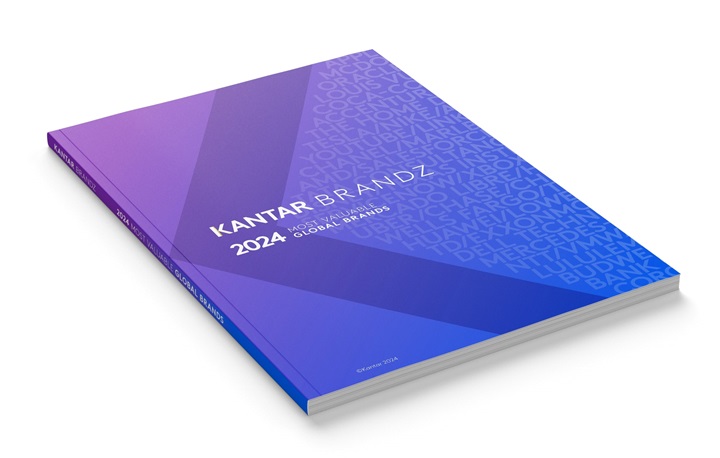Airbnb stands out in the Kantar BrandZ Global Top 100 not only for its strong brand value growth, but also for how that growth has been fuelled by a clear, consistent strategy of being more present.
Being present means being available and easily findable at the purchase moments, with the optimal range of products to meet consumer needs at the right price.
The ‘hows’, ‘wheres’ and ‘whens’ of this availability will vary by category and brand, of course. But, the same general principles apply whether a brand is selling physical goods or digital services. Airbnb’s digital sophistication has long been a cornerstone of its brand presence, while its ultimate offer involves brokering access to a vast network of real-world lodgings. As such, Airbnb should be studied as a prime example of what it means to be more present both online and offline.
The company’s operational metrics prove the efficacy of its user-friendly platforms, with $9.9 billion in revenue (+19.2% year-on-year) and 448 million bookings (+13.9% year-on-year). With a website optimised for user engagement and supported by a robust SEO strategy, Airbnb ensures it remains a top search result, translating into higher organic traffic and bookings. This demonstrates an acute awareness of the importance of being digitally present when travel purchase decisions are being made.
Meanwhile, the brand’s global presence in over 220 countries is a testament to its strategic innovation and expansion. This diversified presence ensures that a wide variety of destinations and accommodation are available to users, contributing significantly to Airbnb’s market share. By localising products and catering to regional preferences, Airbnb continues to expand its availability and offer, driving its share growth.
Airbnb’s full-year results reveal a disciplined approach to growth. This past year, the brand managed to both increase profitability (thanks in part to strong cost management efforts), while also finding ways to be more present as an option for more price-sensitive travellers.
New pricing tools for hosts, combined with a renewed emphasis on affordability and transparency, have strengthened the quality and awareness of Airbnb’s less expensive offerings. Special credit should be given here to Airbnb’s application of AI across its platform, particularly in features like smart pricing. It has served to reduce friction in the customer journey while also optimising the host experience and profitability.
In short, Airbnb is winning by optimising its presence at every stage of the path to purchase. Kantar BrandZ data shows that Airbnb’s volume share is larger than expected given its equity (Demand Power). This is evidence of how its brand presence in the market (Activation Power) is boosting sales.

Of course, being present isn’t enough on its own; you need predisposition too. Predisposed buyers are more likely to search and find you in the first place, which means other factors like price have less influence over the purchase decision. Sometimes, brands that consumers are less predisposed to choose can win out over the option consumers initially favoured. This is where Activation Power comes in.
Activation Power is your brand’s ability to convert consumer predisposition into brand choice through being present in the market. Both Demand Power and Activation Power are necessary for brand growth.
Airbnb’s strategy is to build both Demand Power and Activation Power – brand equity and market presence – being easy to choose and easy to buy.
Airbnb’s pivot from performance marketing to brand building has been critical in its growth trajectory. Bold campaigns highlight unique offerings like Airbnb Categories, underscoring the brand’s distinctiveness. Diversifying into experiences like cooking classes and outdoor adventures illustrates the brand’s commitment to cater to various traveller needs beyond accommodation.
In all, by educating customers about the Airbnb difference, Airbnb has shifted from purchasing customer traffic to building a brand that is Meaningfully Different.
By investing in both the long and the short-term, Airbnb’s continued success can be attributed to two factors working in harmony: a Meaningfully Different brand which creates predisposition, and intentional management of the brand’s presence which effectively converts predisposition into brand choice.

Being present means being available and easily findable at the purchase moments, with the optimal range of products to meet consumer needs at the right price.
The ‘hows’, ‘wheres’ and ‘whens’ of this availability will vary by category and brand, of course. But, the same general principles apply whether a brand is selling physical goods or digital services. Airbnb’s digital sophistication has long been a cornerstone of its brand presence, while its ultimate offer involves brokering access to a vast network of real-world lodgings. As such, Airbnb should be studied as a prime example of what it means to be more present both online and offline.
The company’s operational metrics prove the efficacy of its user-friendly platforms, with $9.9 billion in revenue (+19.2% year-on-year) and 448 million bookings (+13.9% year-on-year). With a website optimised for user engagement and supported by a robust SEO strategy, Airbnb ensures it remains a top search result, translating into higher organic traffic and bookings. This demonstrates an acute awareness of the importance of being digitally present when travel purchase decisions are being made.
Meanwhile, the brand’s global presence in over 220 countries is a testament to its strategic innovation and expansion. This diversified presence ensures that a wide variety of destinations and accommodation are available to users, contributing significantly to Airbnb’s market share. By localising products and catering to regional preferences, Airbnb continues to expand its availability and offer, driving its share growth.
Airbnb’s full-year results reveal a disciplined approach to growth. This past year, the brand managed to both increase profitability (thanks in part to strong cost management efforts), while also finding ways to be more present as an option for more price-sensitive travellers.
New pricing tools for hosts, combined with a renewed emphasis on affordability and transparency, have strengthened the quality and awareness of Airbnb’s less expensive offerings. Special credit should be given here to Airbnb’s application of AI across its platform, particularly in features like smart pricing. It has served to reduce friction in the customer journey while also optimising the host experience and profitability.
In short, Airbnb is winning by optimising its presence at every stage of the path to purchase. Kantar BrandZ data shows that Airbnb’s volume share is larger than expected given its equity (Demand Power). This is evidence of how its brand presence in the market (Activation Power) is boosting sales.

Of course, being present isn’t enough on its own; you need predisposition too. Predisposed buyers are more likely to search and find you in the first place, which means other factors like price have less influence over the purchase decision. Sometimes, brands that consumers are less predisposed to choose can win out over the option consumers initially favoured. This is where Activation Power comes in.
Activation Power is your brand’s ability to convert consumer predisposition into brand choice through being present in the market. Both Demand Power and Activation Power are necessary for brand growth.
Airbnb’s strategy is to build both Demand Power and Activation Power – brand equity and market presence – being easy to choose and easy to buy.
Airbnb’s pivot from performance marketing to brand building has been critical in its growth trajectory. Bold campaigns highlight unique offerings like Airbnb Categories, underscoring the brand’s distinctiveness. Diversifying into experiences like cooking classes and outdoor adventures illustrates the brand’s commitment to cater to various traveller needs beyond accommodation.
In all, by educating customers about the Airbnb difference, Airbnb has shifted from purchasing customer traffic to building a brand that is Meaningfully Different.
By investing in both the long and the short-term, Airbnb’s continued success can be attributed to two factors working in harmony: a Meaningfully Different brand which creates predisposition, and intentional management of the brand’s presence which effectively converts predisposition into brand choice.




